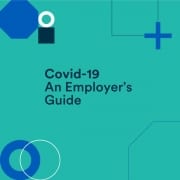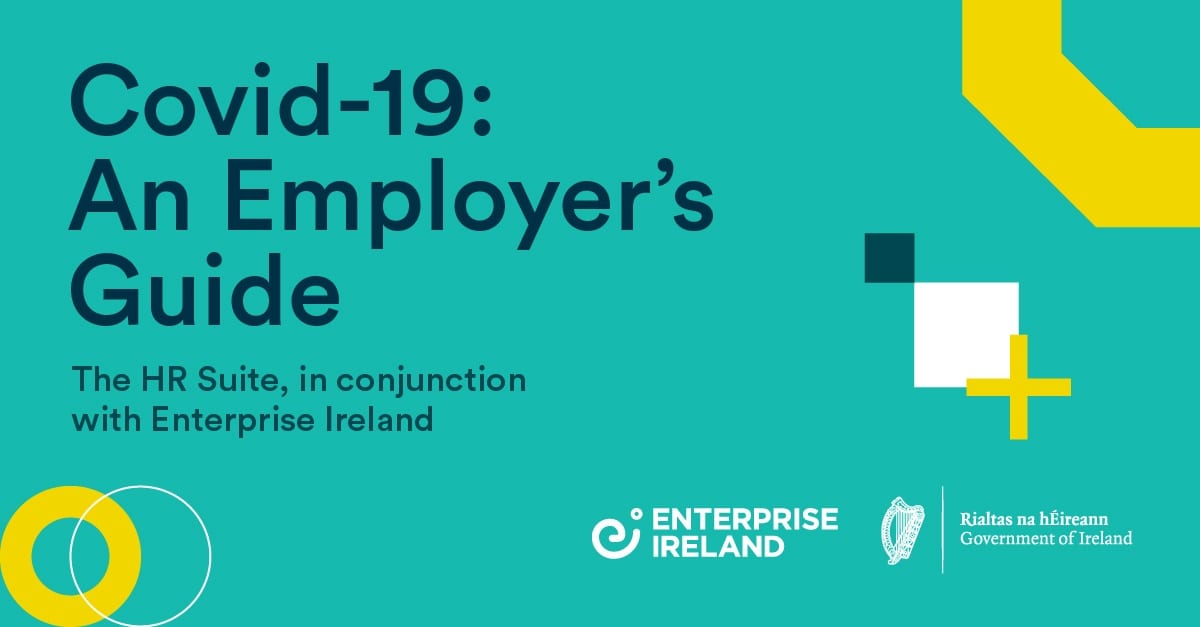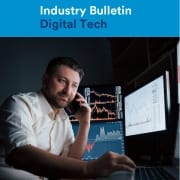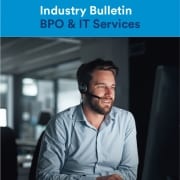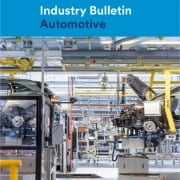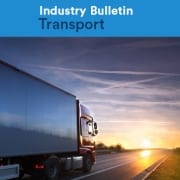Middle East to join the CREW
Irish software services innovator 8 West is bringing its Covid-19 early warning system, CREW, to the Middle East.
Building on its existing success in the region, the company plans to increase its activity in the Gulf region, which includes the United Arab Emirates, Kuwait and Oman.
Innovation to protect frontline workers
8 West is the company behind an innovative new remote monitoring system, CREW, which is designed to protect frontline healthcare workers and their patients from the spread of Covid-19.
CREW, an acronym for Covid19 Remote Early Warning System, remotely identifies healthcare workers who develop a temperature.
A rise in body temperature is the symptom that is most common among all sufferers of virus. A spike in temperature, particularly when combined with an increased heart rate, at a time when no other physical activity is taking place – such as when a person is asleep – can provide a key early warning sign for the onset of Covid19.
CREW consists of a wearable digital thermometer sensor which measures body temperature, and a sensor platform such as a smart phone, smart watch or other IoT (internet of things) device, which runs the CREW app.
A cloud based server then runs the CREW system, monitoring incoming data from frontline workers wearing the device. If an elevated temperature is recorded over a specified time frame, CREW generates an automatic alarm warning both the wearer and their employer of their need to take remedial action and self-isolate.
Collaboration for the greater good
The system has been developed by 8 West in partnership with the Ireland’s College of Medicine and Health at University College Cork (UCC), its ASSERT Centre and the renowned Tyndall Institute. 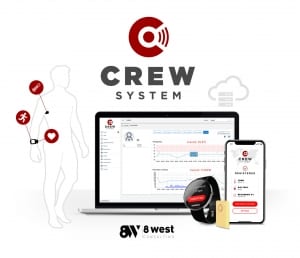
UCC’s ASSERT Centre enables clinicians to design, develop, deploy and trial innovative healthcare solutions in a simulated healthcare environment. The Tyndall National Institute is a leading European research centre specialising in integrated ICT hardware and systems.
Trials are being undertaken at Cork University Hospital.
“CUH Emergency Department staff are delighted to have helped pioneer an innovative 24 hour monitoring device like this,” says Professor Stephen Cusack, recently retired Professor of Emergency Medicine at University College Cork and emergency medicine consultant at Cork University Hospital.
“We are 24 hours on the front line of care daily, and it’s good to know that efforts like this are being made to support our wellbeing 24 hours a day too.”
Product Innovation with SafeTRX
8 West has extensive experience in developing remote monitoring safety and security systems.
The company, which has been in operation since 1998, specialises in providing technology service solutions to the healthcare and retail sectors to international clients such as insurers Anthem, Delta Dental and DentaQuest, and brands such as Estee Lauder and Ralph Lauren.
It is a product innovator too however, developing its own proprietary solutions. One of these is SafeTrx, which is now Europe’s leading tracking and alerting software platform for the marine sector and which was used in 625 rescue missions last year.
It is thanks to SafeTRX that 8 West has an established presence in the Middle East. A bespoke version of what was originally a marine product is now relied on by Dubai’s police force as a way to remotely monitor and leisure sailors in Dubai waters.
CREW is available on iOS and Android smart phones, Apple WatchOS and Google smartwatch operating system WearOS with the mSafety platform from Sony to follow soon. In developing it 8 West received technical and hardware support from a range of companies including Sony Network Communications Europe, Cambridge Wireless, Vodafone Ireland, Huawei, Davra, BlueBridge Technologies and PMD Solutions.
Addressing an immediate need
According to 8 West founder and co-chief executive John Murphy, the solution was developed from start to finish in just three weeks, “a Herculean effort from our employees” and a part of its contribution to the global crisis.
“Fifty per cent of humanity is self-isolating at the moment. We’ve never seen anything like this before and we’ll most likely be living like this for the next 12 months.” said Murphy
As such he believes an early warning system such as CREW, alongside measures such as social distancing and workplace deep cleaning, will be required for a long time to come as part of all employers’ duty of care to staff.
In the meantime, his goal is to make CREW available to as many frontline staff as possible around the world as soon as possible.
It has the potential to help not only individual medics but the wider hospital and nursing home communities and the general public too, says Murphy, who is due to meet with healthcare sector representatives from Oman, Kuwait and the UAE over the coming weeks.
In developing CREW 8 West didn’t just leverage its own SafeTRX technology, it leveraged Ireland’s uniquely collaborative technological eco-system, he points out.
“The Irish response from around the world and particularly the tech sector, was very collegiate. Everybody was ready to give support because, with Covid19, we all share a single purpose now.” said Murphy
CREW’s market expansion strategy is being supported by the Enterprise Ireland team in Dubai who are working closely with 8 West to identify optimal routes to market with key local partners.
According to Mike Hogan, Regional Manager Enterprise Ireland, “Markets across the Middle East are always keen to acquire cutting edge technologies and we think this is even more prevalent in the current situation fighting the spread of Covid-19. I’m sure 8 West’s CREW solution will play a big part in fighting the spread of the disease and protecting the frontline health workers who are doing an incredible job keeping our communities safe”.
Read more about the Irish companies using innovation to make a difference.
Managing liquidity through the Covid-19 crisis
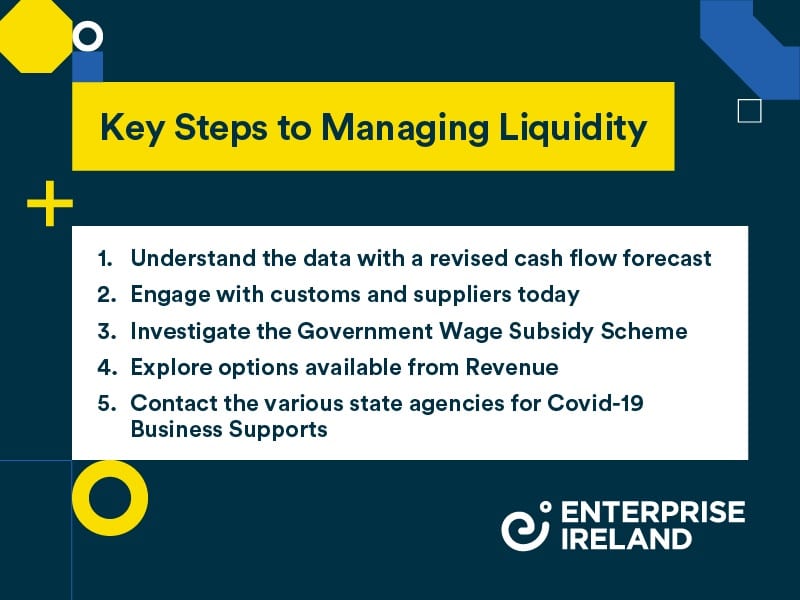
Cash really is king for businesses contending with the Covid-19 crisis. Many of those still trading have to meet ongoing payroll, rent, utilities and other costs in the face of rapidly declining demand, while many others have been forced to close either as a result of government directive or adverse trading conditions and are looking at ways to reopen when the crisis abates.
The challenge for all of these companies is how to manage their liquidity through the coming weeks and months to ensure they are in a position to take advantage of the recovery when it does come.
Interestingly, recent events have served to prepare Irish companies for the shock. “We have been talking to a lot of companies in our role as an outsourced CFO,” says Barry Doyle, director of specialist financial advisory firm SGL.
“They have learned to deal with a lot of problems as a result of the Brexit crisis and they are better prepared as a result. With Brexit, the issues were reduced margins, foreign exchange issues and other disruptions, and they have been preparing for them.” says Doyle.
Of course, the scale of the impact of the Covid-19 crisis is greater by an order of magnitude. “This will mean a shutdown for many companies and a full loss of income for a sustained period,” Doyle points out. “They are seeing zero revenues on one hand while they face continued expenditure on staff, suppliers, customers and so on.”
Understand the Data with a Cashflow Forecast
Dealing with that situation begins with data. “The starting point is a detailed cashflow forecast,” Doyle advises. “That’s key to understanding where you are.” And what you need to do.
He describes cash and communication as the key elements of the approach to be taken once the forecast is complete.
“If working capital is the lifeblood of the business, cash is the oxygen,” he notes. “Companies have got to have working capital available to them to kickstart them after the shutdown.”
Engage with Creditors and Debtors
And that’s where the communication comes in. “You have to talk to your customers to identify what receipts are likely to come in. Are they still open? Are they still in a position to pay bills? Talk to your suppliers to see if they can extend credit to you. Part pay bills if necessary.”
Doyle says the best way for businesses to look at this situation is as akin to hibernation. “They have to squirrel away cash for when spring comes, so they can take advantage of the bounce that will come then. Many companies have seen this coming and have been working with their customers to get as much cash in as possible. Companies who haven’t done this should run an aged debtor analysis to see what might be out there. It might be a case of seeing who they can target for payment when business reopens, or it might be identifying customers to work with to find a way through the crisis.”
Wage Subsidy Scheme to Retain Staff
Cash will still be needed for payroll and other costs, of course. “Nothing is as important as your staff,” Doyle points out. “Your employees are a critical resource in business.”
He believes the Government Wage Subsidy Scheme can help companies avoid the damage of layoffs and advises them to avail of it where possible. “We are working with client companies to help them retain key staff and look after them during the crisis,” he adds.
Access Government Supports
Doyle’s Co-Director John Power describes the various State initiatives, including the Enterprise Ireland Stabilise and Rebuild Fund, Business Financial Planning Grant as a “huge boost”. Companies should monitor Government support developments and banking facilities offered from main banks and SBCI, to support their Working Capital needs to help them bounce back and restart their businesses quickly when working restrictions are eased
“The decision by Revenue to defer interest and penalties for late payment of VAT has also been very helpful,” he adds. “Revenue is not withholding Tax Clearance Certificates for late payment and that means companies will be able to continue to get paid by public bodies during the crisis.”
Power concludes by noting that businesses now have to become much more disciplined in terms of cost controls as well as in credit control. “In good times it is possible to be a bit more relaxed,” he says. “But companies now have to be a lot more disciplined when it comes to credit control. That means calling in debts as they fall due or even offering discounts to customers for early payment. They have got to build as much working capital as they can. Cash is king. That’s never been truer.”
Covid-19: Know your responsibilities as an employer
Employers and people managers around the country, especially those in small and medium-sized enterprises (SMEs) have legal obligations relating to the coronavirus crisis.
In conjunction with Enterprise Ireland, The HR Suite has produced ‘Covid-19: An Employer’s Guide’, a detailed document that outlines everything business owners and managers need to know about their responsibilities towards employees during this challenging time.
Caroline McEnery, Managing Director of the HR Suite says,
“Some of the relevant legislation is new and the changes in it are unchartered for both employers and employees. Other legislation was already in place, but most people wouldn’t have had to worry about it before so it wouldn’t have been on their radar.”
New legislative changes
The main points employers need to be aware of is emergency legislation introduced by the Government related to employee wages and payments.
Companies who can show their turnover has reduced by more than 25% due to Covid-19 may qualify for the Wage Subsidy Scheme. This provides a temporary wage subsidy of up to 85% of take home pay up to a maximum weekly amount of €410 per week to affected companies to help them continue to pay their employees.
Separately, employees who lose their jobs qualify for the new Covid-19 Pandemic Unemployment Payment of €350 a week for up to 12 weeks.
A new Illness Benefit, paid at the same rate, is also available — for two weeks to any employee medically required to self-isolate and for up to 10 weeks for any employee diagnosed with Covid-19.
“The good news is that the process of processing the payments and benefits is very straightforward,” says McEnery. “It’s really important that you communicate all the above information as empathetically and sympathetically as you can to people who are already in a very emotional place.”
Relevant existing legislation
Among the older laws employees may now find relevant is the Redundancy Payments Acts 1967-2014. Under this act, people who are temporarily working fewer hours than they normally would can claim for a payment called Short Time Work Support. It is paid at the same level as Jobseeker’s Benefit (€203 a week), but on a pro rata basis for the days the person is not working.
Layoffs are also covered under the Redundancy Payments Acts. Employers can place employees on a period of temporary unpaid layoff if they believe they will be able to have them back in paid work again when the crisis passes. Employees who have been temporarily laid off qualify for the Covid-19 Pandemic Unemployment Payment, as outlined above.
“The only difference now is that if an employee were laid off previously, they could apply for redundancy after four weeks. That option is paused until the end of May [2020] and will be reviewed again then,” said McEnery.
Stay informed and communicate
With the Covid-19 situation remaining fluid, McEnery says employers should keep up to speed with what is happening and make sure their employees are in the loop too.
“Review your plans every two weeks in line with the latest Government and HSE guidance, while taking into account what is happening in your business,” she says, adding that employers should also make sure they keep communications channels open with their employees and make sure they are informed of any changes they should know about.
Download the ‘Covid-19: An Employer’s Guide’
Market Watch Industry Bulletin – Digital Tech
In the context of the ever evolving Covid-19 situation in which we find ourselves, Enterprise Ireland‘s digital technology companies are experiencing unprecedented changes in the market, facing extreme challenges but also unique opportunities as
they are forced to quickly adapt and thrive in a more virtual and digital reality.
In our bulletin, Enterprise Ireland’s market advisors provide insight on specific market developments, challenges and opportunities as well as some market specific Government supports and industry trends.
Read the bulletin here.
Market Watch Industry Bulletin – Fintech & Financial Services
Download the bulletin here.
Enterprise Ireland financial services & fintech companies are facing unprecedented challenges to continue to build and scale their businesses globally at the rate they were before the crisis. Though they are demonstrating an impressive flexibility and innovation capability to adapt to the new situation and to fulfil their clients’ emerging challenges.
Enterprise Ireland‘s Market Watch for the financial services industry provides insights on the potential impact of Covid-19 on your business. Read the bulletin here.
Market Watch Industry Bulletin – BPO & IT
Download the bulletin here.
In a time of uncertainty and disruption across every industry, companies are reliant on their customer experience and IT teams to ensure they remain connected to their client base, particularly those in front line industries
Irish Outsourcing and IT companies are providing critical services to ensure international companies can overcome these engagement challenges from a remote setting. In our BPO & IT Services Industry Bulletin, Enterprise Ireland’s market advisors reflect on the impact of Covid-19, and outline significant international developments, opportunities, financial supports, and challenges facing Irish companies in the sector.
Read the full report here.
Market Watch Industry Bulletin – Automotive
Download the bulletin here.
The global automotive industry faces an as of yet unseen level of disruption to its production capabilities. Companies along the supply chain are challenged by a drop in demand for vehicles and related products, fragmentation of international supply chains and production plant closures of most OEMs and Tiers. Markets are transforming at an unprecedented pace, with experts rushing to forecast the outcomes and offer solutions to the rapidly changing industry where necessary.
Enterprise Ireland’s first Automotive Industry Bulletin contains a summary of major developments, opportunities and challenges as well as relevant funding supports for each region. The assessment is based on the insights from Enterprise Ireland Global Market Advisors for the automotive industry.
Read the full report here.
Market Watch Industry Bulletin – Cleantech
Download the bulletin here.
The global cleantech and energy industry is experiencing significant disruption and operational issues due to Covid-19. In addition, changing patterns of energy demand, declining oil prices, the continued growth of renewable energy generation and stringent climate action plans, means global markets are changing at pace.
In this bulletin, Enterprise Ireland’s market advisors assess the implications of Covid-19 on the sector and summarise the major developments, opportunities and challenges across international markets.
Read the full report here.
Market Watch Industry Bulletin – Transport
Download the bulletin here.
As an island economy, our economic prosperity is heavily dependent on the reliability of the global transport networks to consistently source key materials from suppliers and in turn ship the finished goods to customers.
The Transport Bulletin provides insights from Enterprise Ireland’s market advisors and industry experts across the world, bringing you a practical overview of freight transport conditions from different markets.
Market Watch Industry Bulletin – Agritech & Machinery
Download the bulletin here.
The Irish agricultural machinery and agritech sector has been designated as a critical service, committed to supplying customers and fulfilling current and future orders. While the sector is open, the Covid-19 crisis presents significant challenges.
Enterprise Ireland‘s Agritech and Machinery industry bulletin looks at international developments from labour shortages to supply chain issues to border closures, and industry stimulus packages which may impact your business.
Read the full report here.
Market Watch – A view from North America
North America, like the rest of the world, has been seriously impacted by the outbreak of COVID-19 and Sean Davis, Enterprise Ireland Regional Director of North America, says while there is no certainty in business at the moment, Irish exporters should seek to reassure their US customers.
Key Takeaways
- The situation is changing daily but most states are operating on a work-from-home basis.
- Travel and supply chain disrupted in many areas.
- Irish exporters are advised to keep in contact with their North American clients, be aware of their situation and the need to communicate more personally via telephone or video link.
- Business is still moving so Irish exporters are encouraged to adapt where possible and utilise time wisely in order to be ready for any business which should arise.
“It’s an evolving situation across North America but for the most part there are work-from -home requirements in most jurisdictions across both the US and Canada,” he says. “Travel is heavily restricted, and there is some supply chain disruption, also your customers are busily working to stabilize their own businesses. There is also uncertainty and fear of the unknown, along with customer cash flow disruption and in some cases contract negotiations frozen.
“With this in mind the focus of activity for Irish exporters should be around three pillars – stabilise, reset and recover, which in the immediate term, means stabilise. So staying close to customers and key strategic partners is vital, as is being aware of their situation, i.e. in addition to shared commercial challenges being able to connect by having an understanding of the specific impact of this crisis in their town or city is an important demonstration of empathy at a critical time
“We are seeing instances where contacts in some NA companies we are close to have been directly and profoundly affected personally by Covid-19, so again situational awareness is important and as much as possible communication needs to be via telephone or video conference as it is much more personal, empathetic and engaging.
“But brevity is key when it comes to the US and while many people are working from home, they are still time poor, so it’s important to keep things brief – to quote Franklin D. Roosevelt ‘Be sincere, be brief, be seated’.”
Davis says that the Reset and Recover phases will be more successful if companies use the stabilise period to accumulate as much market and customer intelligence as possible.
“This is an important time to identify where your company and product offering might have to pivot in order to be ready,” he advises.
“North America is an enormous economy, over $25TRN, and the US is the second largest single export market for Irish companies so despite the challenging times there will be huge market opportunity to develop as we recover and re-emerge. So any movement which demonstrates a willingness, where possible, to share some of the burden created by cash flow or credit terms is beneficial.” says Davis.
“But don’t over-extend your company’s credit terms either; this is a rapidly evolving situation and cash flow is crucial. Any Irish companies with an in-market presence and employing in the region, especially those with significant deployment, should be actively looking at what supports are being made available whether through economic stimulus packages or through funds available to support key sector strategic priorities within a country, state or province.”
Enterprise Ireland has seven offices across the region with teams ready to support their client companies throughout this journey.
“We have developed and completed a six-part webinar series called “Reliance and Adaptability in Extraordinary Times” led by a series of key opinion leaders in areas such as Leadership and Communication, Crisis Communication and Creating a New Narrative,” says Davis. “Our teams are working on a one-to-one basis with clients through key areas and deliverables. And for significantly impacted sectors, we have delivered, and are working on, other webinars bringing client companies and subject matter experts together.
“On a weekly basis, we are gathering market and sector intelligence which is being collated centrally in HQ and distributed via our colleagues in Ireland to client companies.”
While not all sectors are impacted equally, Davis says there are still opportunities available and companies are still signing new business by solving problems, delivering innovation and fostering good partnerships
“Not everything has ground to a halt,” he says. “So I would advise companies to pivot effectively, use our market research centre as it’s a prime time for under-utilised members of staff to build valuable market intelligence or look at opportunities in other North American geographies you have not previously considered.”
“North America is a vast economic and geographical landscape which is likely to emerge from the current crisis in different stages and in different states (US) or provinces (Canada), hence some markets are likely to enter that Recover phase sooner than others and our network will be able to advise and support as this happens.”





